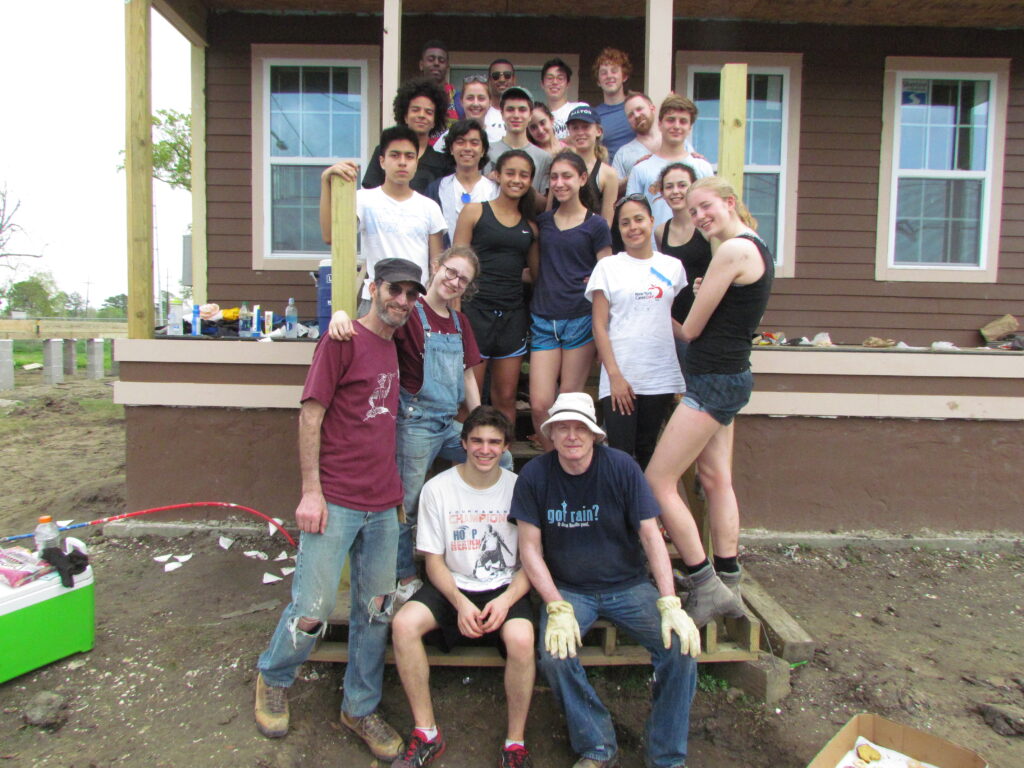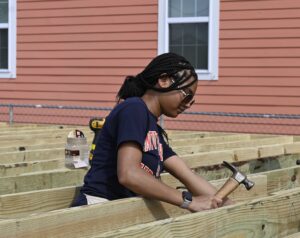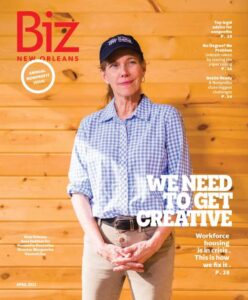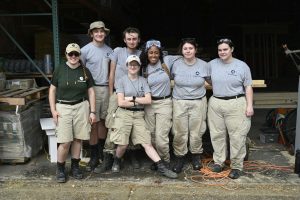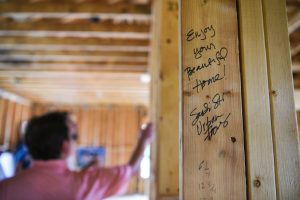The Dalton School spring break volunteer trip started 11 years ago, as many such trips did, as a response to Hurricane Katrina. Andrew Glassman, chair of the English department, came to the city shortly after the storm to help his sister with her home. Seeing the devastation of the city he had known and loved for nearly 40 years, he decided to do something. Joining forces with other staff at the school, he helped to pitch the idea of a service learning trip, and soon, an annual tradition took form that would reshape the culture of the school.
That first year, the infrastructure for building was still not back, so the student volunteers he brought with him found themselves gutting houses with other NOAHH volunteers. The hard work proved not to be a deterrent; when they returned to New York, the students who had spent their breaks partying in the Bahamas regretted not having joined the service trip instead.
“It’s made a real difference in the culture of the school,” he said. “And people know that this is a thing that the school does and they’re proud of.”
The trip has become a signature piece of service learning for the school, with students returning year after year. Students find the opportunity to learn about New Orleans culture through tours and special events, including attending voodoo ceremonies hosted by Glassman’s sister, a local priestess. Most importantly, though, the students learn the commonalities between their community in New York and the communities in New Orleans.
“I noticed the first year when we got back to New York,” he said. “On the train were a couple of students, and one of them, who was a brilliant kid, a serious scientist who’d already won a Westinghouse prize, was looking out at Queens. His face was concentrated, and I asked him, ‘Brad, what are you seeing?’ He said, ‘New York has the same neighborhoods. I didn’t know the people in New York, but it’s all over. And something needs to be done.'”
That something grew to be a student-led Habitat committee at Dalton that has made local community service a priority and a continuing of the annual trip to New Orleans.
“Over 11 years, that’s a couple hundred students who have learned,” he said. “They can pick up skills that they never had. Half of them come holding the hammer up by the head, and you have to teach them. By the end, almost every year the supervisors said, ‘Wow, what a great group. They really came along fast.’ But they’ve also come back with the sense of how good it feels to help.”
On their second and third trips, student bring the skills they learned on their earlier trips back with them. They teach the new volunteers how to a swing a hammer themselves, and they get to see the impact of the work they did in previous years.
“We did a rehab project one year, painting instead of building,” he said. “At first, I thought it wasn’t as significant, but when we went back the next year to visit the owner of that house, we looked down the block and saw three houses that were in renovation. The owner of the house we painted said that they came to her and said if she could do it…”
One of the main themes in Glassman’s classes is the idea of “exile”–he even teaches a class devoted to it called Exiles in Modern Literature. This academic focus has given him insights into how people think of their homes, especially as how a place and its culture can define a person, and vice versa.
“I’ve seen New Orleans come back in a big way, though sadly without a part of the population that was driven out by the flooding, especially in the Lower Ninth Ward. I think that’s changed the culture somewhat,” he said. “What fed the culture isn’t the same, but it’s great to see the city having the strength to rebound. I remember that first weekend I came down, meeting friends of my sister’s. They were trying to figure out what to do next. I asked if their plan was to stick it out. And they said that it was, because their lives didn’t make sense anywhere else. So watching the city revive to me is giving people back the home they understand, the place they understand themselves in.”
He tells a story of a year of study in England that illustrates his ideas. He sought to have a manual typewriter fixed at a shop in Exeter, Devon. The shopkeeper insisted that he first be given a quote for the cost and told him it would be ready “in a fortnight.” Glassman returned in two weeks, and, finding the quote acceptable, asked when the repairs would be done. “In a fortnight,” he was told. When he returned again, the repairs weren’t yet finished, and he said to the shopkeeper, “It’s going to be a fortnight?” The shopkeeper said, “That’s right.”
“At first, it was very frustrating.” Glassman said. “Then I realized this is a different rhythm of life, and I like it. For that year, I really had it, and then I found ways to get it back. But I can’t really do it [in New York] because it’s a different culture.”
In New Orleans, the pace of the city is famously laid back, influenced by its long, varied history. It leaves its impact even on those who only visit.
“It smells like no other place. You go to the airport and there’s an aroma there. It wasn’t noticeable right after Katrina, but it came back,” he said. “[New Orleans is] beautiful. A lot of the architecture is unique. The culture is unique in terms of French, Spanish, and Creole influence. The cuisine is unique.”
“Home is not only the physical space that is secure in terms of your belonging there,” he said, “but it has relationship. It has identity. I don’t think we know ourselves in isolation, but in relationships that we have to people and place.”
